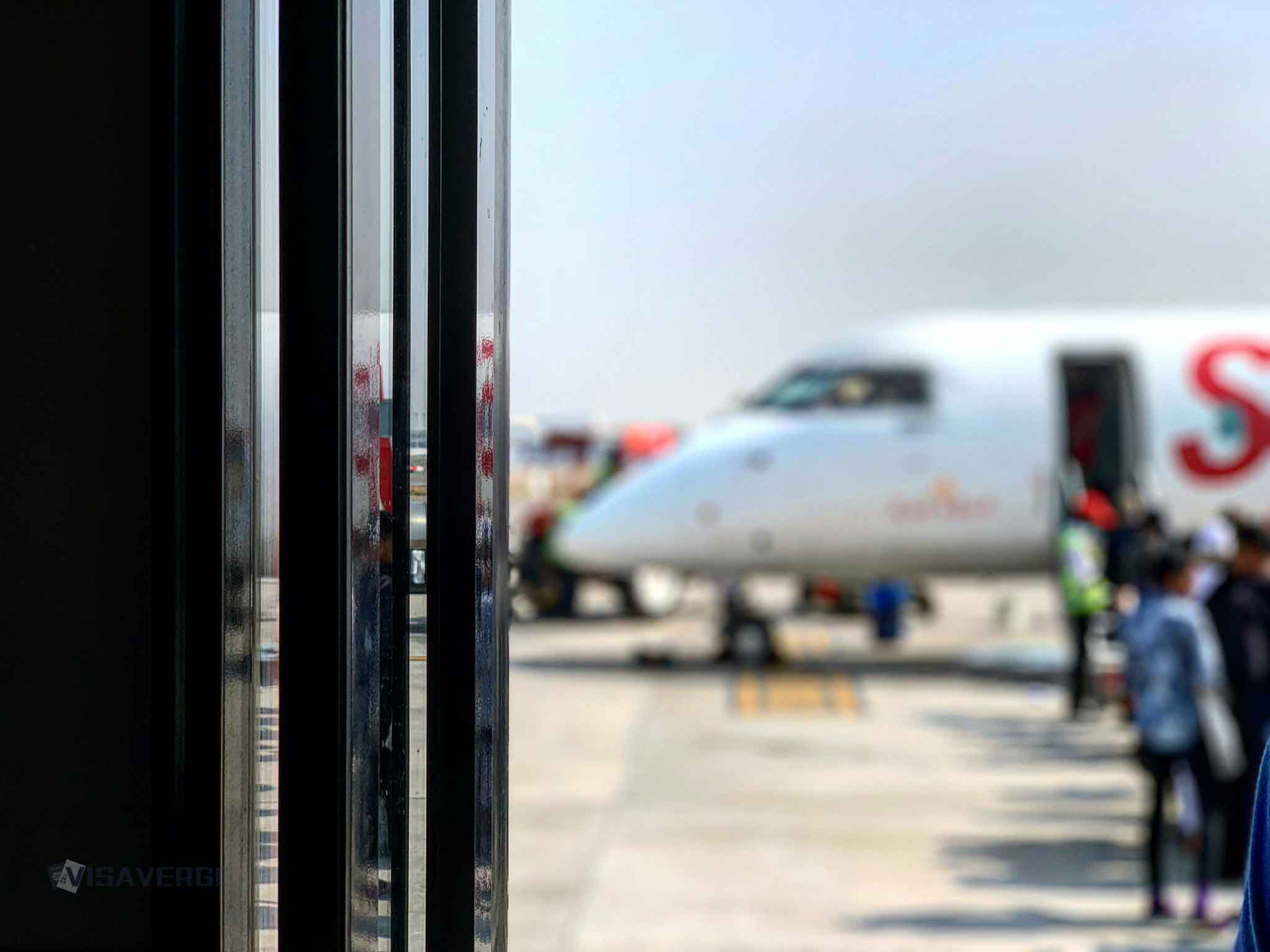Key Takeaways
• Neha and Amandeep Sharma stole over NZ$2 million from Oranga Tamariki using fake contracts and insider help.
• The couple fled New Zealand on a Singapore Airlines business class flight before investigators could act.
• This fraud exposed major weaknesses in New Zealand’s internal controls and raised concerns about public sector oversight.
An Indian couple, Neha Sharma and her husband Amandeep Sharma, recently made headlines after fleeing New Zealand 🇳🇿 to India 🇮🇳 on a Singapore Airlines business class flight. Their escape followed a fraud scheme that shook New Zealand’s public sector. The couple is accused of stealing over NZ$2 million (about US$2 million) from a government agency by using a detailed plan involving fake contracts, forged documents, and insider help. This event has led to more questions and worries about how well New Zealand checks its workers and protects public funds.
How the Fraud Scheme Worked

Neha Sharma, age 36, was a property and facilities manager for Oranga Tamariki, New Zealand’s child welfare agency. In this job, Neha had the power to pick which companies got contracts for repairs and services in the Canterbury area. Her husband, Amandeep Sharma, owned Divine Connection Ltd, which was not even on the agency’s official list of approved contractors.
Despite this, between 2021 and 2022, Neha Sharma sent NZ$2.1 million worth of work to Divine Connection Ltd. This happened through a series of actions that were anything but simple. The couple:
– Used fake documents and made up references to make Divine Connection look trustworthy.
– Changed or tricked the agency’s computer systems and approval steps to get away with the fraud.
– Okay’ed invoices that were much higher than needed, or that were false or made-up.
– Pretended Amandeep was just another independent contractor—hiding their true link.
– Got help from a friend who worked in Oranga Tamariki’s call center, who helped push work toward Divine Connection Ltd.
As reported by VisaVerge.com, these steps made it easy for the couple to move money from the government to their own accounts. Many of these payments were not used for real company needs, but instead spent on the Sharmas’ personal items, like household electronics. In the end, it was internal checks inside Oranga Tamariki that saw things didn’t add up—some jobs were not needed or even real, invoices looked wrong, and Divine Connection Ltd was getting far more work than others.
The Discovery and Sudden Escape
The fraud scheme started to fall apart in late 2022, when auditors inside Oranga Tamariki found odd patterns in how jobs and contracts were given out. Investigators soon found that Divine Connection Ltd was registered to the same address as Neha Sharma’s personal home—an immediate red flag.
Faced with growing suspicion, Neha Sharma quit her job, saying she was being picked on unfairly. However, this didn’t stop the investigation. The Serious Fraud Office (SFO), which looks into big financial crimes in New Zealand, started its own formal inquiry, leading to a police raid on the Sharmas’ home in Christchurch in March 2023. During their search, investigators uncovered:
- Ownership of three different properties
- Three vehicles registered to the couple
- NZ$800,000 in quick-to-access cash and assets
Before the SFO could take further action, the couple escaped New Zealand. They caught a business class flight with Singapore Airlines from Christchurch to Chennai, India. Given the high status of business class, this showed not only their last move to avoid New Zealand law, but also how they used part of the stolen money for personal comfort.
The Role of Singapore Airlines in the Escape
Singapore Airlines played no part in the fraud itself, but still became a key part of the escape story. The couple’s choice of a direct business class flight allowed them to leave quickly and in comfort. High-end travel options like business class can sometimes help people leave unnoticed, as passengers in these sections often get special treatment and faster help through checkpoints.
For airport and airline security, the case shows how even strict systems can miss people who plan well and move quickly. Many news outlets, including those covering airline news, have drawn attention to how big crimes can sometimes cross country borders faster than officials can react.
The Wider Impact on New Zealand’s Trust
This fraud scheme hurt more than just Oranga Tamariki. It created a shockwave across New Zealand’s government and people. Karen Chang, who leads the SFO, said crimes like this lower public trust in government. She explained that when workers in charge of public money break the rules, it makes others wonder if any public fund is really safe.
This concern is about more than just the money lost. Public trust and New Zealand’s reputation as a fair, safe place to live or invest are now on the line. Investors and immigrants have long seen New Zealand as a country where rules are followed and people’s rights are protected. Stories like this could make some think twice about living there, working there, or trusting the local system.
The Sharma case is not alone. New Zealand has faced other big fraud cases recently, like a separate story about a CEO in Whanganui accused of helping scam artists move over $1.5 million out of the country. These repeated cases are fueling calls for tougher screening of workers, especially those in important roles or who move between government jobs—gaps in these checks can let misuse like this happen.
What the Investigation Teaches About Internal Risks
This case shows several areas where public agencies can be at risk:
- Conflict of Interest: Neha Sharma’s job let her decide who got contracts. She could easily favor her husband’s company, especially since rules and checks failed to spot their close relationship.
- Failure in Vetting: Divine Connection Ltd was not on the approved list of suppliers. Yet Neha Sharma managed to direct over NZ$2 million to her husband’s company by using inside knowledge and possibly weak oversight.
- Abuse of Internal Systems: By forging documents and manipulating approval steps, the couple made sure their secret stayed hidden. This points to a need for better checks in computer and paperwork systems, and regular audits.
- Use of Associates for Cover: Getting a friend in the agency’s call center involved showed how insider help can let fraud go farther and last longer.
These facts underline why it’s important for government agencies to have tough, ongoing checks not just at the start of someone’s job, but all through their career. Extra care is needed when workers have access to public money or can pick who gets paid by the government.
How This Affects Immigrants and Workers
Cases like the one involving Neha Sharma and Amandeep Sharma also influence the way immigrants are viewed and treated, especially in countries that pride themselves on being open and fair. New Zealand, for example, has many skilled immigrants, like Neha Sharma, in public sector jobs. Most do good, honest work. But when a crime like this hits the news, there is a risk that public anger or suspicion might fall unfairly on all immigrants or certain communities.
For other immigrants—both those living in New Zealand and those considering a move—the story may cause worry. Will this case lead to tougher checks or deeper suspicion, even when there is no good reason? Balancing careful vetting with fair treatment becomes key at a time like this.
At the same time, many immigrants rely on the honesty of public programs and need to feel their adopted home’s services can be trusted. If these systems can be tricked so easily, it may not just change public opinion but could also scare away skilled workers needed in many sectors.
Calls for Stricter Rules and Better Checks
In the wake of the fraud scheme, New Zealand’s leaders are facing strong calls for action. People want:
- Improved background checks and regular reviews of government workers, especially those who hold power over contracts or funds.
- Regular audits of both workers and the companies who get government work, making sure no one benefits from favoritism or hidden ties.
- Tighter controls on how public contracts are handed out, especially where there are family or close friend connections.
- Better protection for whistleblowers—those who see and report wrong actions—so fraud can be caught sooner.
As similar cases happen around the world, many countries are looking at how their own systems might be improved. If agencies in New Zealand 🇳🇿, which scores high in world rankings for honesty and safety, can still be fooled, no system is fully without risk.
For readers looking to understand more about New Zealand’s anti-fraud programs and government efforts to keep systems safe, the Serious Fraud Office’s page on fraud prevention is a helpful starting point.
Singapore Airlines and its Image
Singapore Airlines is one of the top-rated airlines worldwide, and its name came up in this story only because it happened to be the couple’s carrier out of New Zealand. The company itself had nothing to do with the fraud scheme. Still, the escape shows the ways people fleeing legal trouble can use common, legal means—like a simple plane ticket—to leave a country fast.
International airlines take security seriously and work within the laws of each country. It is up to border officials and local government, not airlines, to stop or alert authorities about wanted people, unless specific “do not board” orders are in place.
Lessons for Other Countries and Agencies
Globally, public sector fraud is a big threat—not just for the money lost, but for the way it shakes trust in government. This case highlights:
- The need for constant checking of workers who manage public funds.
- Making sure new hires and contractors go through better reviews.
- Regularly asking for up-to-date disclosures about any family who could gain from a worker’s position.
- Giving regular training to staff about fraud risks and how to spot suspicious activities.
Every government agency, no matter how safe it may feel, can learn from what happened in New Zealand. Simple but regular checks can often stop or quickly find fraud.
Conclusion: Restoring Trust and Moving Forward
The fraud scheme involving Neha Sharma, her husband Amandeep Sharma, and Divine Connection Ltd brought big losses—both in money and in the trust people have in their government. The methodical move of NZ$2 million out of a public agency and the couple’s last-minute exit on a Singapore Airlines business class flight highlights an ongoing risk: when oversight slips, even trusted workers can bend the rules to their own gain.
Bringing back trust means more than just recovering lost money or catching those who run. It means a long-term promise to fair, open government; strong, sensible checks; and a focus on stopping the next fraud before it starts.
As more facts come out about the case, all eyes will be on how New Zealand responds: Will there be stronger vetting, better collision checks between job roles, or new tools to spot early warning signs? For governments, workers, and immigrants alike, this story is a reminder that trust, once lost, is not easily rebuilt.
For those interested in learning more about New Zealand’s approach to fraud prevention and current guidance, they can visit the New Zealand Serious Fraud Office’s official resource page for the latest details and reports.
Learn Today
Oranga Tamariki → New Zealand’s child welfare government agency responsible for protecting and supporting children and young people.
Serious Fraud Office (SFO) → A government body in New Zealand specializing in investigating and prosecuting serious financial crimes and fraud.
Conflict of Interest → A situation where professional judgement may be influenced due to a personal or financial relationship.
Vetting → The process of investigating someone’s background and suitability for a specific role or responsibility.
Whistleblowers → Individuals who report or expose wrongdoing or illegal activity within an organization or institution.
This Article in a Nutshell
Neha Sharma and her husband Amandeep orchestrated a bold NZ$2 million fraud in New Zealand, exploiting public trust. Their swift escape to India aboard Singapore Airlines business class prompted shock and scrutiny of Kiwi public sector safeguards, revealing systemic vulnerabilities demanding improved audits, stronger vetting, and smarter contract oversight for lasting trust.
— By VisaVerge.com
Read more:
• Florida’s immigration law faces renewed challenge at federal appeals court
• First self-deportation flight under new DHS program departs Houston
• Ashley Moody targets Chinese student visas with new Stop CCP VISAs Act
• Houston Aerospace Company completes first U.S. flight of new hypersonic engine
• India launches new OCI portal to improve services for cardholders







